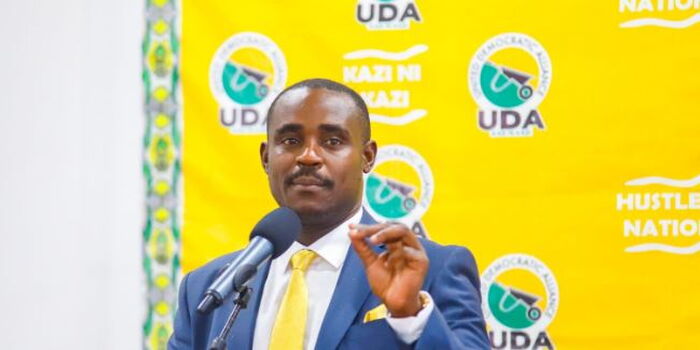Cleophas Malala has suffered a major setback after the High Court confirmed his removal as the United Democratic Alliance (UDA) Secretary General.
On Monday, April 28, Justice Bahati Mwamuye delivered the much-anticipated ruling, overturning a previous decision by the Political Parties Disputes Tribunal (PPDT) that had temporarily reinstated Malala to the powerful position within the ruling party.
The High Court declared that the gazette notice formalising Malala’s ouster was both valid and enforceable.
In the decision, the court ordered that Malala’s appeal at the PPDT be terminated immediately, meaning he would not be able to pursue the matter any further before the tribunal.
“The 1st respondent’s appeal before the PPDT is hereby terminated and shall not proceed before the tribunal.
Any orders previously issued in favour of the respondent are hereby vacated,” read part of the judgment.
By nullifying the proceedings at the PPDT, the court closed another possible legal route for Malala to fight his removal.
The ruling also solidified Hassan Omar’s position as the official UDA Secretary General, further cementing the party’s recent leadership changes.
Malala had initially tried to fight his removal in October 2024 by filing a complaint with the tribunal.
His move briefly halted the transition after the tribunal instructed the Registrar of Political Parties, Anne Nderitu, not to effect the changes until the case was resolved.
Malala’s sacking came after mounting tensions within UDA. The party’s National Executive Council (NEC) had called for an urgent meeting to resolve the escalating wrangles.
During the meeting, chaired by UDA’s national chairperson Cecily Mbarire, Malala’s appointment as interim Secretary General was officially revoked.
This decision was later formalised through a government gazette notice in August 2024.
Even after being kicked out, Malala refused to stay silent. He continued to publicly accuse the party leadership of unfair treatment, claiming he was targeted because he refused to back the impeachment of former Deputy President Rigathi Gachagua.
Malala further alleged that Majority Leader Kimani Ichung’wah and party chair Cecily Mbarire were the key figures behind the plan to oust him.
Despite the political fallout, Malala stayed in the spotlight. Just recently, in April, he made headlines again — but this time through the arts.
A high school play he wrote and directed, titled Echoes of War, sparked intense national debate.
The play was widely discussed because it subtly mirrored Kenya’s current political climate, drawing fresh attention to Malala’s ongoing role in political discourse even outside party structures.
Join Our Political Forum official 2025 WhatsApp Channel To Stay Updated On time https://whatsapp.com/channel/0029VaWT5gSGufImU8R0DO30


